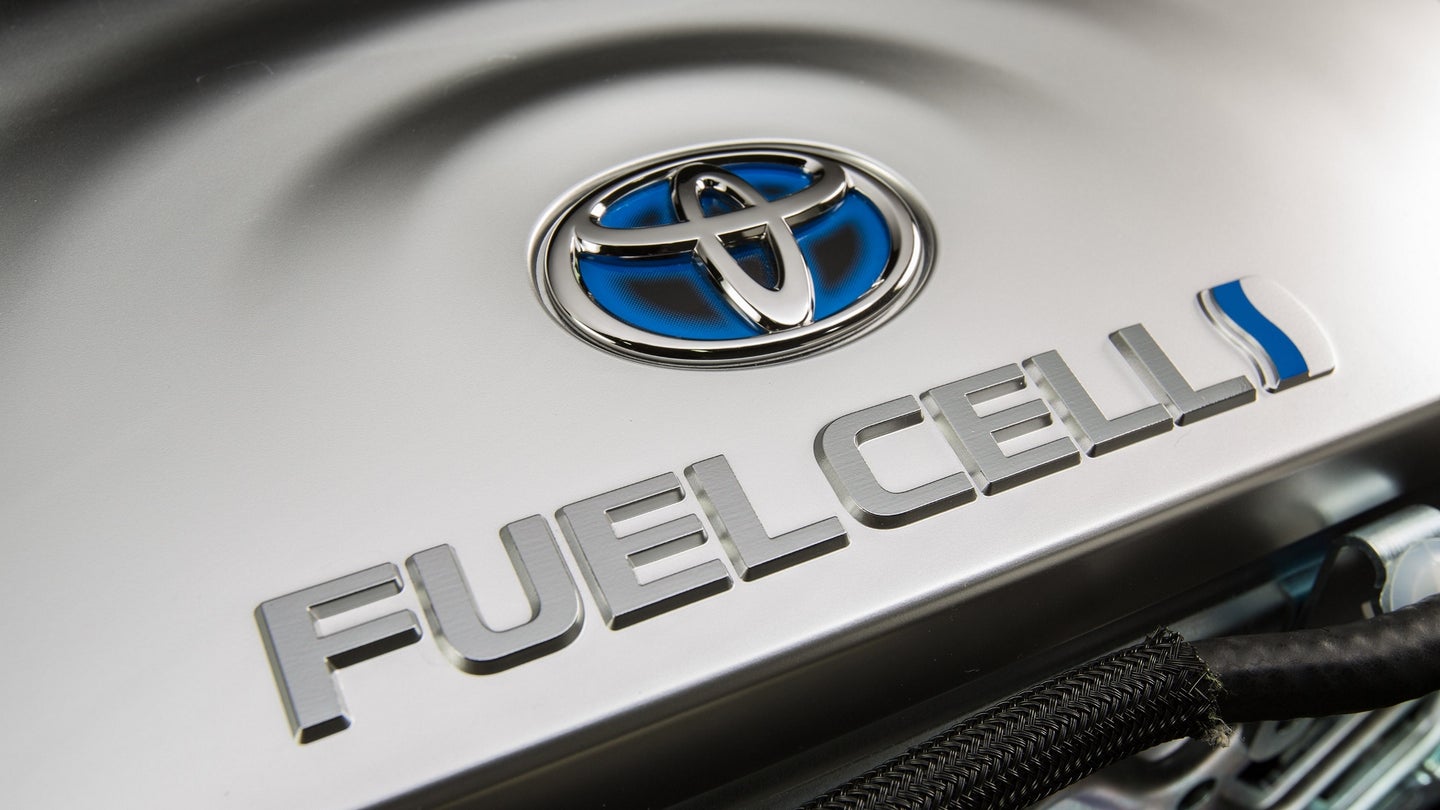Japan Is Planning for 200,000 Hydrogen Cars by 2025
They’re going long on fuel cell vehicles.

As EVs slowly enter the mainstream, Japan plans to skip ahead to hydrogen fuel cell vehicles as the environmentally-friendly conveyance of the future. The Japanese government is working in cooperation its the auto industry crafting a plan to put 40,000 hydrogen powered cars on Japanese roads by 2020, 200,000 by 2025, and 800,000 by 2030. The fleet would be served by an expansive network of 900 fueling stations.
Right now, there are currently about 1,740 fuel cell cars in Japan and about 4,000 worldwide. There are three commercially available hydrogen-powered models—the Hyundai Tucson Fuel Cell, which came out in 2013, the Toyota Mirai, and the Honda Clarity, which was launched in 2016. Japan is currently the largest market for hydrogen vehicles, the US a close second, Europe in a distant third, and South Korea trailing in fourth.
Why is Japan pushing hydrogen so much? Not only is it to reduce emissions in the fight against climate change, but it can also bring them closer to energy independence. Japan imports almost all of its oil and hydrogen could be a huge step in reducing dependency on foreign energy.
As noble as this goal is and as huge as it would be if they even came close to what they’re going for, Japan might be putting too many chips on hydrogen. While other manufacturers in other parts of the world are still tinkering with hydrogen power, it’s mostly just a Japan thing right now.
Unless Japan can pull off a major breakthrough and convince the rest of the industry that hydrogen is the future, this plan could be a very expensive dead end. It took Toyota - the king of hybrids - nine years to sell 500,000 hybrids worldwide, and those are cars that already have a large global network of fuelling stations. 800,000 fuel cell cars in just thirteen years is awfully ambitious.
